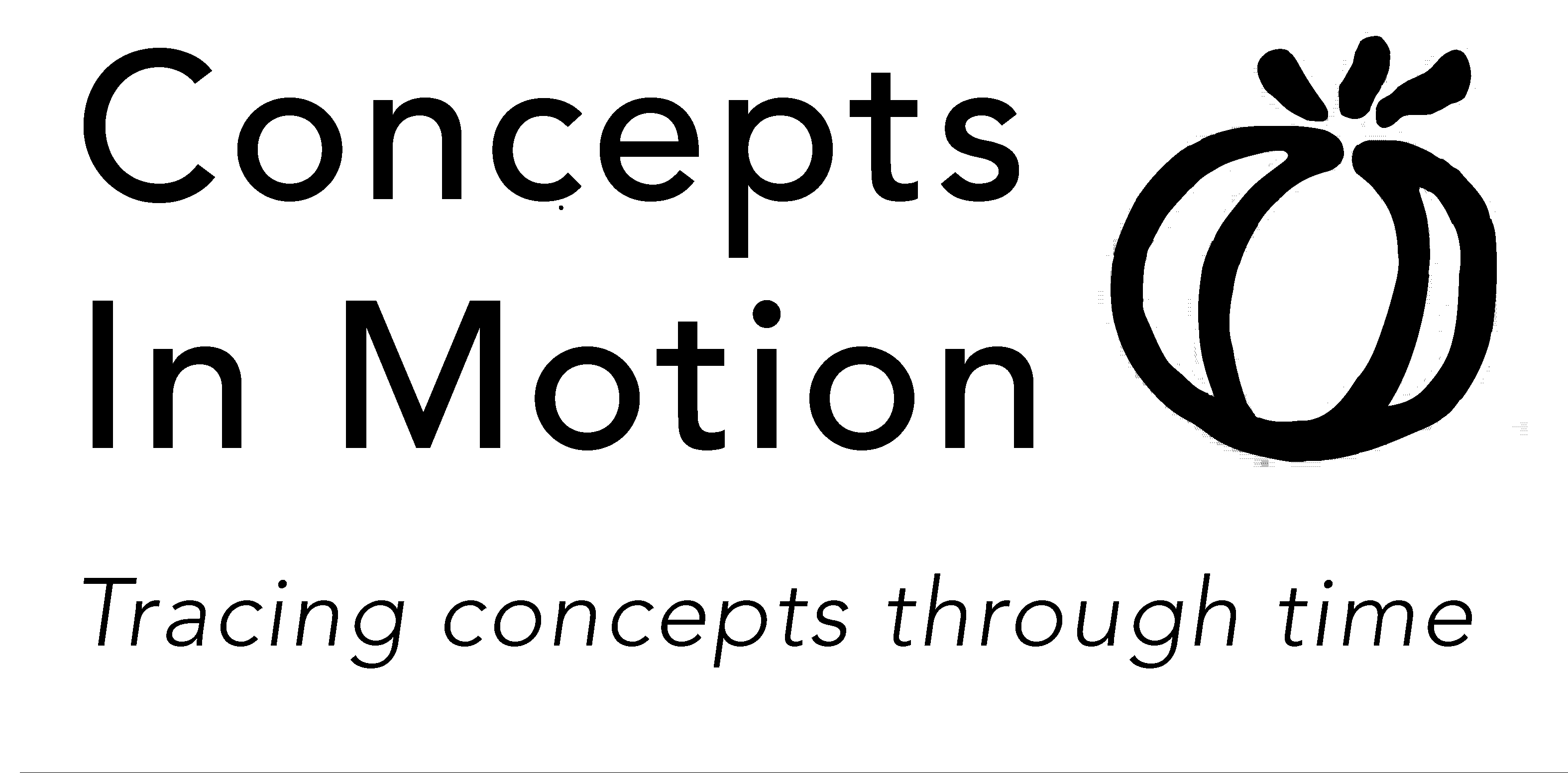The Concepts in Motion group has conducted pioneering work in applying computational tools to the history of philosophy since 2009, has extensive experience with all aspects of the typical workflow of philosophers going computational (including OCR challenges, issues in corpus-selection and high-quality corpus-building), and has in-depth familiarity with a variety of computational methods. The group has strong, active collaborative links to the Benelux Digital Humanities community. The PI is a member of the Network Institute (NI) of VU University, a major player in the field of digital humanities in the Amsterdam area and the Netherlands, and has an extensive international network of experts in history and philosophy of logic, historical NLP, library and information science, and visualization in the Humanities.
Small data, big challenges. Concept drift for multilingual philosophy corpora
Human(e) AI – Seed Funding Project 2019
The semantics of meaning: distributional approaches for studying philosophical text
Network Institute Academy Project (1 nov 2018 – 31 jul 2019)
Golden Agents
NWO groot project (1 jan 2017-31 dec 2021)
e-Ideas
VICI project (1 jan 2017-31 dec 2021)
CatVis: Visual Analytics for the World’s Library Data
Creative Industry Project (1 sep 2015 – 31 aug 2019)
Quine in Context
BA Honours project, embedded and continued in The Semantics of Meaning, Small data, big challenges and eIdeas. (1 apr 2015- 30 sept 2018)
Tarski’s Revolution
ERC Starting Grant (2008-2013). See the project result summary and the publication output on openAIRE. Some useful scripts were developed within this project.
The following twelve spin-off projects in OCR, Text-mining and Visualisation, in several combinations of subteams, were initiated during Tarski’s Revolution, or followed immediately after it.
OCR
TiCCLing Philosophy (2012-2013)
Funded by the CLARIN-NL Call 4, TiCCLing Philosophy developed the open source OCR-post correction tool @PhilosTEI, which is the open source answer to the commercial ABBYY. The tool can OCR multi-lingual, multi-script historical texts including 19th-Century Fraktur. We continue involvement with Martin Reynaert’s work within CLARIAH as users. Next to perfectioning our current tool, one of the aims is to build a workflow from printed work to text-mining of ‘more than perfectly OCR-ed’ corpora.
@PhilosTEI: Building Corpora for Philosophers [in press]. Betti, A., Reynaert, M., van den Berg, H., in: Odijk, J., van Hessen, A. (Eds.), CLNBK16. Ubiquity Press, London, 2017.
Text-Cleaning & Digital Editions in Open Access
An online collaborative edition of Bolzano’s Wissenschaftslehre in Open Access, linked to something called Bernard Bolzano Portal, a new experimental collaboratory for research communities.
Text-Mining
Phil@scale 1 (2012-2013)
Developed the text analysis tool SalVe (desktop version) conceived especially for philosophical texts, together with the group of Frank van Harmelen (VU). SalVe is not yet properly documented, nor packaged for distribution. This paper contains an explanation of the workings of the software and what is can do for philosophy:
In Wieneke, L.; Jones, C.; Düring, M.; Armaselu, F.; and Leboutte, R., editor(s), Proceedings of the Third Conference on Digital Humanities in Luxembourg with a Special Focus on Reading Historical Sources in the Digital Age. CEUR Workshop Proceedings, CEUR-WS.org, volume 1681, Aachen, 2016.
Phil@scale 2 (2013-2014)
Put SalVe on the web. A report and partial documentation are available. An elementary introduction to SalVe web for humanities is under preparation here.
SalVing GlamMap (2014)
Added text-mining functionality to GlamMap, see Visualisation.
Our current text-mining projects are Quine in Context and e-Ideas.
Deep NLP
Modelling Perspectives (1 oct 2015-31 lug 2016)
Visualisation
Mapping Philosophy in Europe
a visualisation pilot showing logic books in Europe (1700-1940) on a map, together with the group of DJA-fellow Bettina Speckmann (Eindhoven). It developed the first prototype of GlamMap, a visualization tool of bibliographic metadata using interactive, computer-generated maps in the tradition of Minard.
Mapping Philosophy 2
Follow-up of Mapping Philosophy in Europe.
Mapping Culture (GlamMap): Scalability of insightful metadata visualisation for the GLAM (cultural heritage) sector
ERC Proof of Concept. We scaled GlamMap up to a million record, and did market research as to innovation and commercialisation potential.
GlamMap GlamUp (2013-2014)
Third follow-up, focused on data cleanup and the (re)usability of our map by libraries linking to OCLC/WorldCat ids.
